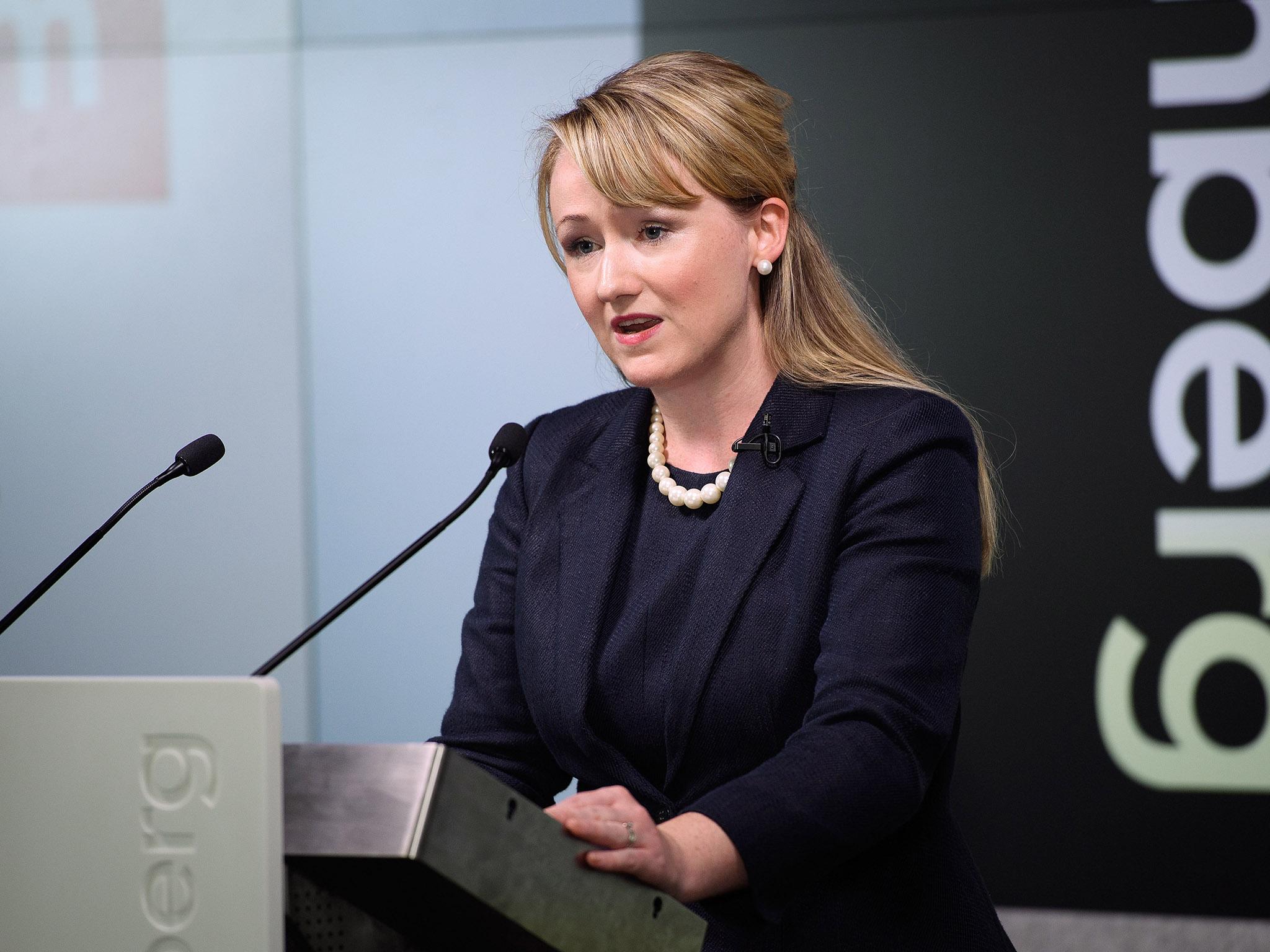Corbyn is irreplaceable, not that the left of Labour haven’t been trying with Rebecca Long-Bailey
Everyone knows Corbyn won’t be around for the general election, but the search for his successor isn’t going well

It is clear to all but those deepest in the rabbit hole that Jeremy Corbyn does not want to lead the party, not least into an arduous general election campaign.
However, such is his and his team’s commitment to their own dogma that he cannot stand aside until a suitable successor is secured. Since Labour’s moderates such as Margaret Beckett and Sadiq Khan will not nominate a left-wing candidate out of charity once more, deadlock will continue unless the so-called McDonnell amendment – lowering the nomination threshold from 12.5 per cent to 5 per cent of MPs and MEPs – can get through this year’s conference.
The pretenders to the crown are few and far between. John McDonnell himself has ruled out a third bid for the leadership after failing to make it to the ballot in 2007 and 2010, and Diane Abbott is hardly linked, even speculatively, with the job.
The focus is turning to the 2015 intake, who have been promoted and overpromoted as Corbyn looks to cobble together a frontbench coalition of the willing. They have fresher faces, less baggage and have been picked to take the hard-left torch from the last remnants of the 1980s.
The new hope of the left appears to be Rebecca Long-Bailey, the Shadow Business Secretary, promoted to the role following Clive Lewis’ resignation in February. She has always been a Corbyn enthusiast; nominating him in 2015 and helping him launch his re-election bid.
The leadership team has consistently promoted her interests and praised her every television appearance. It is hard to see why. Following the Autumn Statement, she was dissected with ease by Andrew Neil, forgetting her lines and encouraging him to check the Government’s website for industrial schemes which she should have known about. A similar lack of detail was evident on Andrew Marr shortly after the Budget, when she claimed that Labour was planning an extra £63bn of spending but could not name where the cash would come from. Corbyn himself disowned the figure a day later.
If she is the best the hard left has to offer, it is not for a lack of searching. It emerged in February that Corbyn’s team had ordered focus groups to comment on Long-Bailey and Angela Rayner, the Shadow Education Secretary. It was the former who was better received, with voters seeing her as “passionate”, “genuine” and “very smart”. Rayner was “not likeable”, “a bit charity shop-looking” and “weird”.
Lewis had emerged as the early frontrunner but piety comes before practicality. He rowed with the leader’s office over last-minute changes to portions of his conference speech concerning unilateral nuclear disarmament and was soon shuffled out of his defence brief and into business. His resignation over Article 50 will no doubt endear him to Labour’s overwhelmingly Europhile membership.
Richard Burgon, a faithful Corbyn steward, is merely a left-wing proselytiser who deals in slogans about austerity and the establishment and accused his own colleagues of supporting the “political and economic status quo”. Meanwhile, Cat Smith defended Labour’s loss of Copeland to the Conservatives as an “incredible achievement.” They have both been kept from high profile shadow cabinet posts and the media, despite their undying loyalty.
There is simply a dearth of talent on the left. Though any semblance of a cabinet balanced between Corbyn loyalists and sceptics disappeared after last summer, the likes of Keir Starmer and Emily Thornberry are merely willing to work with the leadership rather than fellow travellers.
Moderates did a good job of securing conference delegates in 2016. The death of Michael Meacher means that the number of MPs who supported Corbyn in 2015 has slipped and his wing of the party has done a poor job of selecting its candidates for by-elections.
Support for his project has been steadily dipping and Corbyn’s support will only drop further the longer he remains leader. It seems highly unlikely that he will get his chosen successor, whether he stands down before a general election or after one.
Join our commenting forum
Join thought-provoking conversations, follow other Independent readers and see their replies
Comments
Bookmark popover
Removed from bookmarks